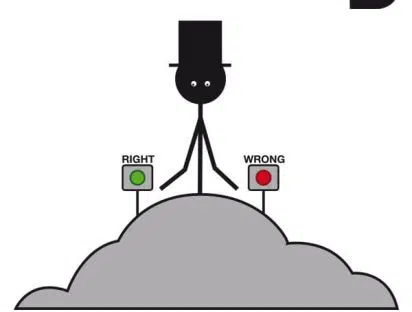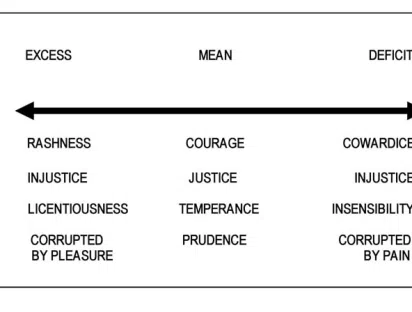The concept of “transgression” seems to fit with several characters typical of the economic field. Perhaps the first of the transgressors would be the fraudster, since he is breaking the law as well as ethical rules. Some entrepreneurs who have gone beyond common practice by displaying selflessness that goes against economic rationality could also fall into this category. The whistleblower is another potentially transgressive character. He is the subject of the present post. The connection between the whistleblower and the idea of transgression will be approached through the observations of an American philosopher, C. Fred Alford. A search for the occurrences of the word “transgression” in the headlines of articles published by the three main business ethics journals (1) provides only two results – two articles in the Journal of Business Ethics. They focus only on how to restore trust after an “ethical transgression.” For example, the article by Tumasjan, Strobel and Welpe is concerned with the consequences of a moral transgression by a business leader on the relationship between management and employees. However, the central concept is that of social distance between an evaluator and the leader, and between the leader and subordinates, not that of transgression as such (2). Moreover, neither of the two articles addresses the case of the whistleblower, which is the subject of this post. A link between the concept of transgression and this figure in corporate life was established by the political philosopher C. Fred Alford in a book published in 2001 (3). It is useful to make an introductory remark before presenting the context in which he evokes, on several occasions, the concept of transgression. To the extent that the whistleblower acts for the public good, his act is transgressive only with regard to a norm of, for example, loyalty, the purpose of which is to guarantee the cohesion of the group, in this case the human community that constitutes the company. Alford defines the whistleblower “in theory” in terms of the public good (but without any reference to loyalty): “Anyone who speaks out in the name of the public good within the organisation is a whistleblower” (4). And further:
“The whistleblower is a political actor in a nonpolitical world. This world is called the organisation.”
By contrast, the fraudster, or the perpetrator of a moral transgression, in the words of the authors quoted above, acts contrary to the public good. The whistleblower, on the other hand, does not transgress the inflexible general rules that serve the public good, according to words borrowed from David Hume (5). Yet Alford uses the image of transgression as “the force that makes the world go around” to describe the character of the whistleblower:
“In such a world [i.e. the world of organisations], the most terrifying thought is that representatives of the outside are on the inside, traitors in our midst. The whistleblower becomes an insidious disease, a boundary violator.”
This character is a transgressor, but only within a certain world, not within the wider world of civil society that he aims to defend. But how does Alford characterise this world? He affirms that “the organisation is a bureaucracy obsessed with its boundaries” and that it “acts as if it lived in a perfectly Hobbesian world: the goal is autarky, and this is achieved via transgression. The organisation secures its boundaries only by transgressing the boundaries of others, lest it be transgressed against.” Members of such an organisation have “the sense of operating in a hostile environment made up of other organisations.” Through this image of the organisation, we recognize one of the metaphors of business life that three specialists in the field, Wicks, Gilbert and Freeman, proposed to change in a famous article published in 1994 (6). This metaphor was the first in a series of five to which new ones should be substituted in order to give new foundations to business ethics. In the following quotation, we will note the link that these authors establish between the idea of “frontier,” which is associated with the concept of transgression, and the myth of the frontier specific to the American spirit:
“The first assumption we want to explore is the idea that the corporation is an autonomous entity which is fundamentally separate from its environment. […] One theme particularly characteristic of the American experience, has been the image of the pioneer, an image which describes both a heroic individual and a context in which that individual is able to act in and dominate a formidable environment. Such an outlook makes sense on the frontier – a setting where one’s actions appear to have little direct influence on, or connection with, those of outside one’s clan (or firm).”
Alford’s language is similar in nature but more direct. He argues that “against organisational paranoia [arising from the fact that corporate members are also citizens], autarky is the preferred solution: total control of the internal environment to combat the threat from the external environment.” According to Alford, the consequence of such a view is that “it is misleading to suggest that the whistleblower sets truth against loyalty. This suggests an image of the organisation that is too passive and static,” whereas in reality it struggles to defend its territorial integrity as far as possible. “The real opposition,” Alford continues, “is between individual and collective transgression. Will the individual be available for the act of collective transgression or will he not?” Alford invokes Michel Foucault to characterise the way power works within the company (in his view, this power has a feudal character: it is not a purely bureaucratic power, but a feudal power, property of lords, vassals and minor nobles, without control of bureaucracy). If an employee becomes a whistleblower, he experiences discipline as Foucault understands it. He is considered a patient within his own organization:
“Power within the company works in more intimate and subtle ways in the modern world [by contrast with the mere ability of the employer to fire the whistleblower], isolating the insubordinate one from his or her fellows by diagnosing him or her as abnormal or disturbed. […] Disciplinary power makes the whistleblower a patient, though we have to understand that term in its broadest sense: one whose flawed perceptions of reality are the result of a moral or emotional illness, and who must be reformed by power, lest his symptoms prove catching.”
It is here that Alford explains his formula: “The whistleblower is a political actor in a non-political world:”
“Under discipline there can be no political or ethical discourse. Any talking that takes place with the patient is strictly instrumental, aimed at controlling the patient through categorisation and labelling.”
In Alford’s view, the whistleblower does not experience his disloyalty towards the company, but his confrontation with a human system turned towards the defence of its integrity, that is, to use his language about transgression, its “boundaries.” The concept of loyalty is not essential to explain the psychological situation of the whistleblower or to judge his act. This is a point that a specialist in business ethics, Ronald Duska, developed systematically in a short and brilliant argument. It will be discussed in a future article. Alain Anquetil (1) Journal of Business Ethics, Business Ethics Quarterly and Business Ethics: A European Review. (2) A. Tumasjan, M. Strobel and I. Welpe, “Ethical leadership evaluations after moral transgression: Social distance makes the difference,” Journal of Business Ethics, 99, 2011, p. 609-622. The other article is by P.T.M. Desmet, D. de Cremer and E. van Dijk, “On the psychology of financial compensations to restore fairness transgressions: When intentions determine value,” 95, 2010, p. 105-115. (3) C. F. Alford, Whistleblowers: Broken lives and organizational power, Cornell University Press, 2001. (4) Ibid. (4) In practice, Alford defines the whistleblower by his or her experience of retaliation: “The whistleblower is defined by the retaliation he or she receives. [She] becomes a whistleblower only when she experiences retaliation.” He based his analyses on interviews with whistleblowers who have suffered in their personal lives as a result of their actions. “Most have lost their houses,” Alford writes. “Many lost their families. It doesn’t happen all at once, but whistleblowers’ cases drag on for years, putting a tremendous strain on families. Most whistleblowers will suffer from depression and alcoholism.” (5) “Public utility requires that property should be regulated by general inflexible rules.” D. Hume, Appendix III of An Enquiry Concerning the Principles of Morals (1751). (6) A.C. Wicks, D.R. Gilbert, R.E. Freeman, “A feminist reinterpretation of the stakeholder concept,” Business Ethics Quarterly, 4(4), 1994, p. 475-497.



